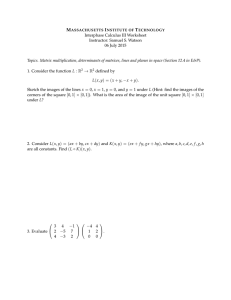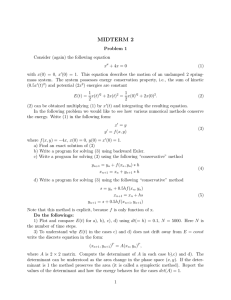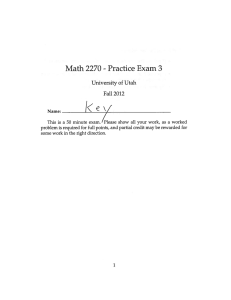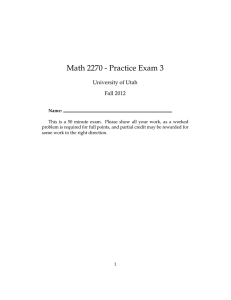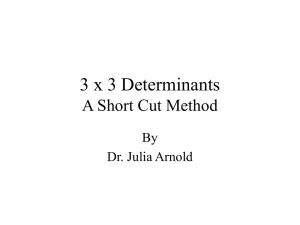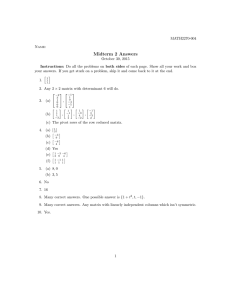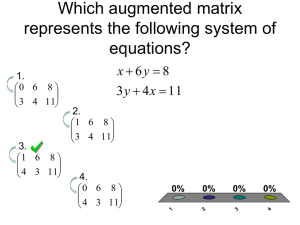2 × 2 The determinant of a matrix
advertisement
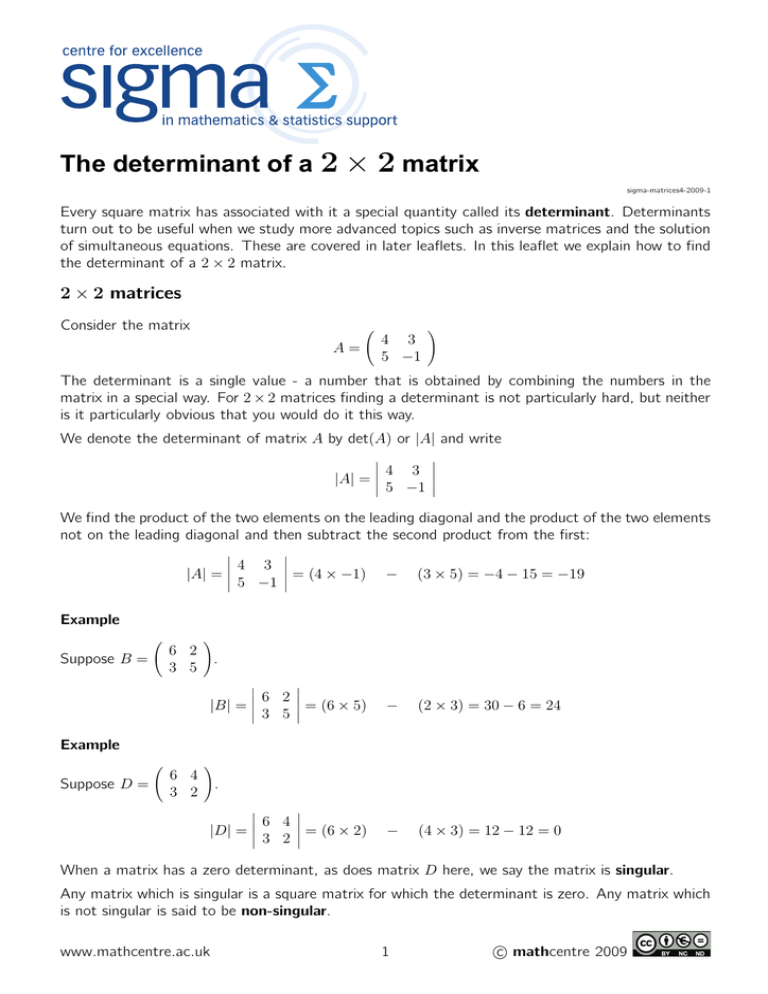
The determinant of a 2 × 2 matrix sigma-matrices4-2009-1 Every square matrix has associated with it a special quantity called its determinant. Determinants turn out to be useful when we study more advanced topics such as inverse matrices and the solution of simultaneous equations. These are covered in later leaflets. In this leaflet we explain how to find the determinant of a 2 × 2 matrix. 2 × 2 matrices Consider the matrix 4 3 5 −1 A= ! The determinant is a single value - a number that is obtained by combining the numbers in the matrix in a special way. For 2 × 2 matrices finding a determinant is not particularly hard, but neither is it particularly obvious that you would do it this way. We denote the determinant of matrix A by det(A) or |A| and write 4 3 |A| = 5 −1 We find the product of the two elements on the leading diagonal and the product of the two elements not on the leading diagonal and then subtract the second product from the first: 4 3 |A| = 5 −1 Example Suppose B = 6 2 3 5 = (4 × −1) 6 4 3 2 − (3 × 5) = −4 − 15 = −19 . − (2 × 3) = 30 − 6 = 24 − (4 × 3) = 12 − 12 = 0 6 2 = (6 × 5) |B| = 3 5 Example Suppose D = ! ! . 6 4 = (6 × 2) |D| = 3 2 When a matrix has a zero determinant, as does matrix D here, we say the matrix is singular. Any matrix which is singular is a square matrix for which the determinant is zero. Any matrix which is not singular is said to be non-singular. www.mathcentre.ac.uk 1 c mathcentre 2009 Finally, we will look at the determinant of a general 2 × 2 matrix. Suppose A = If A = a b c d a b c d ! ! . a b |A| = = ad − bc c d , then its determinant is a b = ad − bc |A| = c d If ad − bc = 0 then the matrix is singular. Further leaflets in this series explain how to calculate the determinant of a 3 × 3 matrix. Note that a video tutorial covering the content of this leaflet is available from sigma. www.mathcentre.ac.uk 2 c mathcentre 2009
